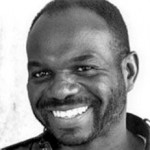August 17, 2006—Chantal Mukandoli travelled all the way from Rwanda for this week’s International AIDS Conference in Toronto. A short trip, she says, compared to her journey since the days in 1994 when she was repeatedly raped during the 100-day genocide there—and exposed to HIV in the process. “I suffered for years before I could begin to talk openly about this,” she recalls.
Mukandoli is speaking to other conference-goers this week on a theme that has emerged as central in Toronto: the cruel link between sexual violence and HIV, both as an extra factor for infection and in response to the news of a woman’s diagnosis.
HIV transmission through forced sex with a positive man is as tricky to measure as it is to stop. “It’s not only rape and sexual abuse but also marital rape, which is not even recognized by some countries,” says HIV positive activist Louise Binder of Canada’s Blueprint for Action on HIV and Women.
But new studies suggest that women who have experienced violence may be up to three times more likely to acquire HIV. In the U.S., a longitudinal study by the Women’s Interagency HIV Study (WIHS) has documented a high degree of sexual violence and domestic abuse among its cohort of largely African-American HIV positive women.
Danielle Layman-Pleep, executive director of Ontario, Canada’s Voices of Positive Women, reports that, “In the last two years, four HIV positive women in our organization have died—and three of those four were from violence from their partners.”
The anecdotal evidence is worldwide. “We’re seeing this everywhere,” says Binder.
It also turns out that in many more cases than were imagined, violence enters a woman’s life the moment her husband or boyfriend learns her status. Fear of such an assault often keeps women from getting tested in the first place, and in other cases, from seeking HIV treatment.
The imbalance of power between the genders is a well-known factor in negotiating safe sex, but this goes beyond that. “A lack of respect for women’s rights both fuels the epidemic and exacerbates its impact,” write the authors of “Strengthening Resistance—Confronting Violence Against Women and HIV/AIDS,” a report just released by the Center for Women’s Global Leadership.
Then add war into the mix. Rape is an HIV-tinged weapon in conflicts in Darfur, Sudan, for instance, and the Democratic Republic of Congo (DRC). The pattern has been documented by Human Rights Watch and other rights groups, which say the situation of mass rape in the DRC goes beyond anything the world has seen. Doctors struggle to repair women’s mutilated bodies in repeated fistula operations, and a growing number of rape survivors have tested HIV positive. Women and children also make up 80% of refugees and easily fall prey to rape in and around temporary refugee camps.
The way forward, advocates are arguing here this week, is to put issues like rape and domestic violence front and center in global AIDS efforts and earmark the funds to make that happen. None of the major AIDS funding mechanisms—the Global Fund, UNAIDS, PEPFAR, World Bank, UNICEF—designate money to address sexual violence. “We need to get this up to the level where the policy makers begin to act,” says Sally Fisher, who runs a group called Intersect that operates primarily in Africa and Asia.
At a press conference this morning to release a new report, the Global AIDS Alliance called for $2 billion annually to fund a comprehensive effort to combat violence against women related to HIV/AIDS. They are urging donors to devote 10% of global AIDS funding to programs that specifically address this issue, and have asked host countries to take up a “focused effort” to fight sexual violence.
Advocates also want better documentation of the problem and money to scale up the work that grassroots groups are already doing to protect women from the virus and the violence and to care for the victims of this toxic combination.
At an IAC conference strategy session this week called “Building A Movement,” health care providers from the Caribbean, Africa and South America swapped strategies for empowering positive women caught up in violent partnerships or enduring other mistreatments triggered by their diagnoses—and providing supportive services for survivors of sexual violence.
Finally, there are campaigns afoot to enlist men as role models and peer educators for other men. Bukeni Tete Waruzi Beck is with a group called AJEDI-Ka/PES that works in the DRC to help former child soldiers and women who were enslaved there during the wars that have raged almost constantly in the past decade. Many have HIV.
“As a man, I am committed to fighting sexual violence against women and children,” says Beck. “I appeal to other men to join us in our efforts. This is our joint struggle.”
Women here in Toronto pushing for funding and attention for this issue can only agree. “We need men to be our allies,” says Fisher. “They have a role to play here.”
Violence and the Virus: IAC Women Say Hands Off






Comments
Comments